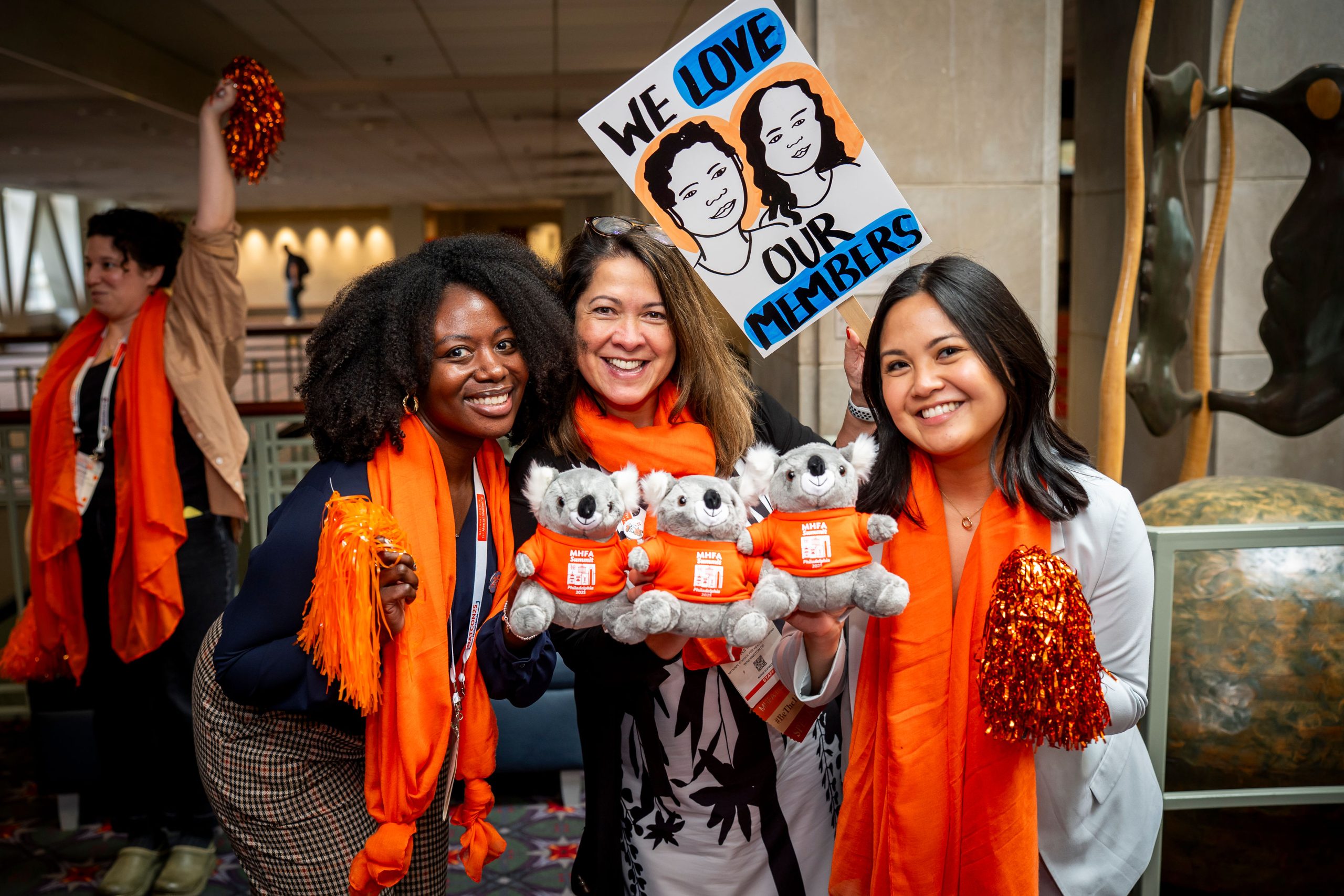“Of the almost 20 million individuals with a substance use disorder in 2017, more than 2 million qualified as having an opioid addiction,” according to research published in the Journal of the American Medical Association (JAMA).
Every day, 140 people across the United States die of a drug overdose, 91 of which are because of opioids. And the death toll keeps rising. That is why it’s important that we understand what opioids are, the impact of the opioid epidemic across the country and how we can help as certified Mental Health First Aiders.
Here are 10 things you need to know about the opioid epidemic.
- What are opioids?
Opioids are a type of drug used to reduce pain. They work by binding to specific brain receptors to minimize the body’s perception of pain. - What are the most common types of opioids?
Common types of opioids include oxycodone (OxyContin), hydrocodone (Vicodin), morphine and methadone. - Why do people switch from opioid pills to heroin?
Four out of five people who are addicted to heroin say their addiction started with prescription opioids. Heroin is chemically similar to prescription opioids and affects the body and brain the same way. However, it’s cheaper and sometimes easier to access through street drug dealers. - What are the risks and side-effects of opioid use?
Prescription opioids have several side-effects, even when taken as directed, including increased sensitivity to pain, nausea, vomiting, dizziness and confusion. They can also cause a person to stop breathing or develop a tolerance, making them feel like they need more of it to feel “normal” or to get the same high they did the first time they took the drug.
- How big a problem is the opioid epidemic?
Opioid painkiller addictions and overdoses are a rapidly growing problem, with no immediate end in sight. Between 2011 and 2015, overdose deaths in the United States from opioids tripled. And by 2014, Americans became more likely to die from an opioid overdose than from a car accident. - How does someone overdose from an opioid?
When a person takes too much of an opioid painkiller, they can experience slowed breathing, confusion, lack of oxygen to the brain and even death. Opioid overdoses most commonly occur when alcohol, sedatives or a combination of opioid painkillers is taken, when a person accidentally takes too much of their prescription medicine or when a person mixes certain types of prescribed medicines. - What increases the chance of an opioid overdose?
Risk factors that can increase the chance of an opioid overdose include using multiple substances, variation in strength and content of substances used, tolerance level and more. - What is naloxone?
Naloxone (also known as Narcan and Evzio) is an opioid antagonist, which means it reverses the effects of opioids on the body. It is a temporary solution that can provide time for medical professionals to arrive and give appropriate medical attention. - Where can I go if I’m addicted?
The Substance Abuse and Mental Health Services Administration (SAMHSA) National Helpline is a free, confidential, 24/7, 365-day-a-year treatment referral and information service for individuals or family members facing a mental health or substance use challenge. Call the hotline 1-800-662-HELP (4357) if you need help. - What can I do to help others?
Get trained in Mental Health First Aid. You will learn risk facts and warning signs for addiction concerns, strategies for how to help someone in crisis and non-crisis situations, how to administer naloxone, if necessary, and where to turn for help.
IMPORTANT NOTE: If you or someone you know is experiencing an overdose, call 911.



